Dell EMC's Goulden And Burton On China, HPE, The Future Of VMware, And The Advantages Of Going Private
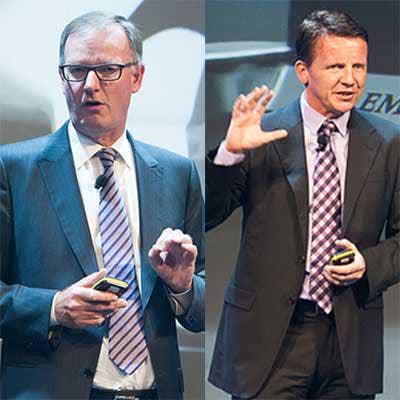
Dell EMC Navigates A Host Of New Business Issues
David Goulden, president of Dell EMC, and Jeremy Burton, chief marketing officer for Dell EMC (pictured l. to r.), recently sat down with CRN to talk about the massive changes impacting the company since it was formed from last year's acquisition by Dell.
In this part of a two-part conversation, Goulden and Burton discuss the potential impact should the Trump administration impose trade sanctions against China, the advantages (and there are many) of doing business and developing new products as a private instead of a public company, and competitive pressures from sometime-rivals, sometime-partners like Hewlett Packard Enterprise and Cisco Systems.
And given Dell EMC's position as one of the top two vendors in the hyper-converged infrastructure industry, Burton also had some strong words about HPE's acquisition of SimpliVity.
Read about these issues and more and then look for the other half of the discussion, which focuses on technology.
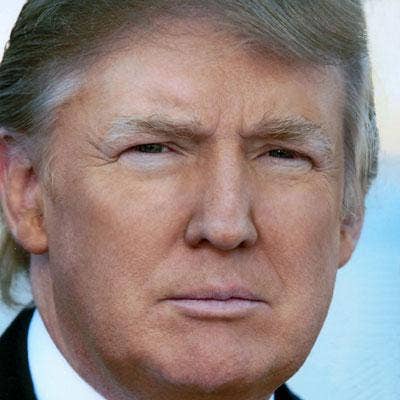
The Trump administration has talked about trade restrictions on China as part of a push to move manufacturing to the U.S. Because so much of what IT sells comes from China, what does EMC see as potential issues from such a move?
Burton: I’d say we’re probably the wrong guys to answer the question. … Now, we have a big business in China. …
Goulden: A huge business. I believe it’s our second market outside of the U.S. now as Dell Technologies. China is the second biggest market for us.
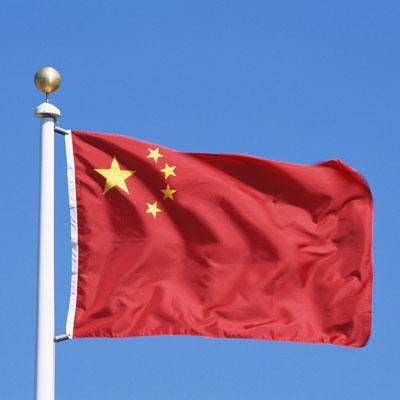
How important is China in terms of a manufacturing spot for the equipment that Dell EMC sells in the U.S.?
Goulden: We have Foxconn. Obviously a major vendor there. We use Foxconn for some of our manufacturing. So, yeah, China is a very important hub. The other thing is, a lot of the componentry is coming from the Asia region into the Foxconn hub and out again.
This is something that’s obviously multifaceted, but … we’re the business guys. We’re the guys who are building the products, running the business, marketing the products. We can go so far with you, but if you want to really double click on this, we have a whole team in government affairs.

Could EMC easily move manufacturing to the U.S.?
Goulden: Dell EMC has manufacturing in the U.S., mainly from the ex-EMC side. We have factories in Massachusetts, in North Carolina, so we have a manufacturing footprint in the U.S. today.
Burton: I think it goes without saying. When you change strategy, we’ve got to think a bit longer than the next four years. We can make decisions that impact us for the long term, so you’ve got to make sure you understand the subject matter fully.
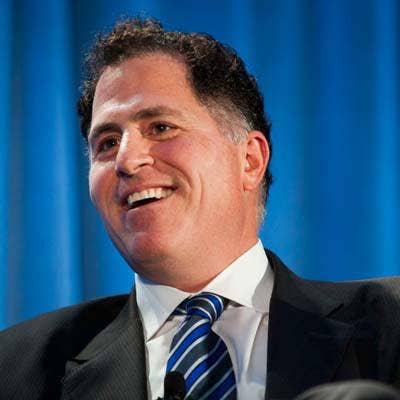
Dell Technologies CEO Michael Dell is on the Trump administration's manufacturing council. Does that help Dell EMC?
Burton: I think having a seat at the table is precious because A, you’ve got to understand what is the policy; B, I think you’ve got to understand the rules; and then C, and this is where the government affairs team comes in, what are we going to do about it? I don't think we know any of A, B, and C right now. It’s still really in the realm of speculation.
Goulden: People are watching the news carefully and there’s much speculation. I think there’s a risk that chasing ghosts is always not a very productive thing to do. To Jeremy's point, we can speculate and watch, but until things start to firm up … it’s almost in the realm of speculation, I guess.

Now that the EMC is part of a large private company and no longer public, does it change how your team does business? Is it easier to do R&D, or look at new revenue models, as a private company than as a public company?
Goulden: In the longer term, yes. Bear in mind the fundamentals don’t change that much. In a public company, they changed from a maniacal focus on the income statement to, in a private company, a more maniacal focus on cash flow, which is really the better metric anyway, right?
We’ve all been through business school, and we know that public companies are obsessed over their income statement, which is only a temporal thing in time. This lets us take a longer-term view.
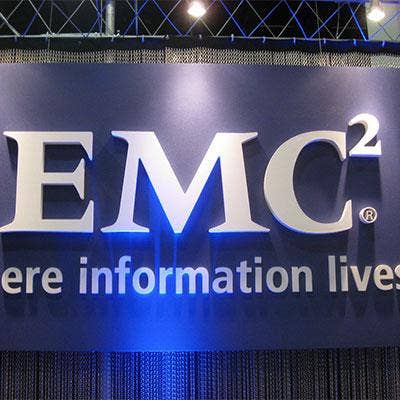
Do you have any examples?
Goulden: It’ll impact the way we go to market in a fairly big way, which will help our customers [and] partners. ... A lot of customers these days, because of the cloud, say, 'Look, I want you to put the product on the floor, but I want to pay for it as I use it.'
As a public company, that’s a really tough model because you now are recognizing revenue [over time]. Rather than selling a $50,000 system, you might get $1,000 a month for 60 months. You might get more money, but it’s coming on the drip. As a private company, we’ll lean into that all day long. If that customer says to you, 'Mr. Dell EMC, rather than paying you $50,000, I’ll pay $1,000 a month, use up, use down 60 months,' we’ll take that deal.

How about in terms of R&D?
Goulden: R&D is similar, but obviously with a longer-term horizon because you’re always making R&D bets with a view for multi-years out. We can take a longer, more patient view. For example, if we think we’re making a very strategic bet, but it’s going to be 18 months before it comes to market, we may have been previously pressured to do something in nine months just to start showing a short-term return, when the better thing to do is to wait for 18. Now we can make that decision as well much more comfortably. Because it’s all about maximizing long-term cash flow, which is what business should be about, right?
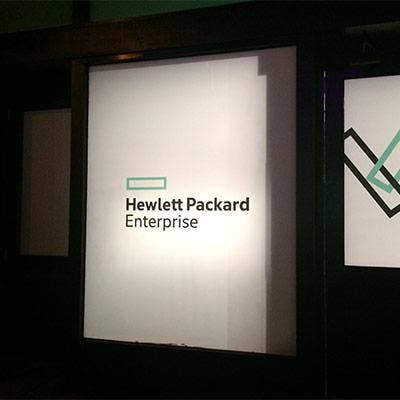
On the hyper-converged side, HPE is acquiring SimpliVity. Does Dell EMC see any competitive threats from HPE integrating SimpliVity technology into its products? Is this part of a long-term hyper-converged infrastructure consolidation?
Burton: I can't understand why they didn’t buy Nutanix. To me, that’s an act of madness because Nutanix is the market leader. They have the best technology and therefore, arguably the best team. We found, in our business, when we bought Data Domain, or when we bought XtremIO, or when we bought Isilon, when we bought a market leader and pushed it through our distribution channel, lift off. [HPE] bought the B team.
Goulden: SimpliVity … shrank in the last quarter.
Burton: So lots of Opex, unimpressive growth, B team. Now, could they sell more through HPE? Sure. Has got a much bigger footprint. Are they going to win? No, I think they’ve got no chance.
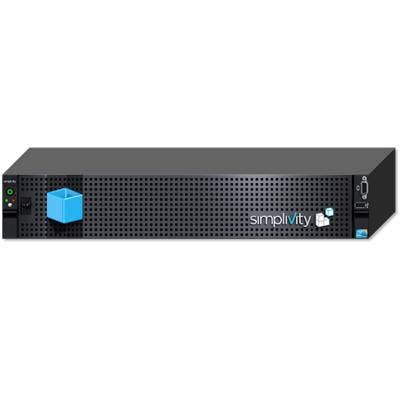
Well, to be fair, Antonio Neri, executive vice president and general manager of HPE's Enterprise Group, admitted that SimpliVity's revenue was down, but said total bookings and units sold were up because they were selling more software and fewer OmniCubes.
Goulden: Whether they shrank or whether they grew is not really important. They lost share whichever way you count it, right?
Burton: The fact is he’s having a discussion around, 'No, no, we didn’t actually grow. We use an alternative set of facts, which shows that we did.' The fact that he even has that discussion is bizarre in a market that is booming. … If SimpliVity was a great product, they would be doing the same. I think the reason why the valuation was what it was is because they don't have a great product because they have the B team working on it. They don't have the revenue growth, and their expenses are too high. Hence, they get sold for $650 million versus a couple, three billion dollars.
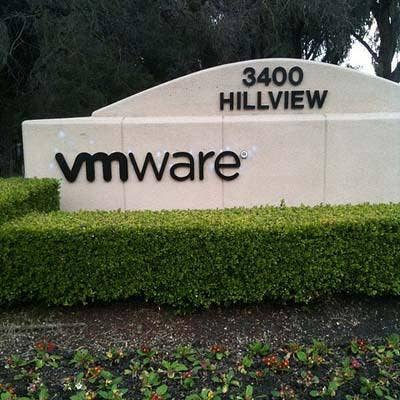
Are Dell and EMC sales reps pursuing opportunities which include VMware? Or are the sales kept separate? What’s the interaction there?
Goulden: Historically, they’ve been separate. It goes way back to the merger. In fact, it goes right back to when EMC bought VMware back in 2004. ... Historically, there was effort to try and make sure that there was no bias in the VMware ecosystem. Ten years on plus, the world has become a little bit more mature. Actually, other companies like HPE and IBM do pay their reps on selling VMware, and by the way, Dell paid their reps on selling VMware. [So to a certain extent] EMC was actually at a disadvantage for being very pure in terms of that aspect of our model.

Despite the fact they actually sold more VMware because of that.
Goulden: In the early days, right. To answer your question, specifically, going into this fiscal year … the Dell EMC reps are going to be paid on VMware sales provided they have some involvement in creating that sale. Just jumping on the back of an existing relationship isn't going to get any, but they will get paid on VMware in fiscal 2018, which I think is going to be a good thing. We’re going to follow the model that Dell had before.
Burton: We’ve got revenue synergies in this deal. Look at the cross-sell opportunity for VMware, whether it’s reselling VMware or reselling VxRail because it’s a big part of that opportunity. When we get going we expect higher alignment than maybe we’ve seen in the past between Dell Technologies' companies. That’s one of the reasons why I think we think we can make more money that way.

How does that change from last year?
Goulden: Last year, the EMC team would’ve been paid on the full content of a VxRail. VxRail includes vSphere, vSAN, VxRail Manager. There’s a fair amount of VMware software in that. Last year, the EMC team would’ve been paid on that because it’s a SKU that went through all systems. They would only be paid on that. This year, they get paid, for example, if the EMC team or Dell EMC team is selling enterprise hybrid cloud that includes the full VMware stack.
That would include the full SDDC [software-defined data center] suite. Let’s say the customers have vSphere 4 and the Dell EMC team comes in and they’ll get them to buy NSX and vRealize and vClouds and all the rest of it as part of an EMC sale. … They get paid on those things.

You said the Dell EMC and VMware sales sides are working closer together. How about on the technology side? Does Dell EMC get any preferential technical status with VMware?
Goulden: We will still be very intellectually honest. We won't do anything proprietary that another partner couldn't do. Now, we could do more if we leaned into it. The only exception that would be in hyper-converged, where we’ve chosen to partner exclusively. VxRail is exclusively Dell EMC and VMware. But apart from that, everything is open, and VMware will maintain the ecosystem partnerships.
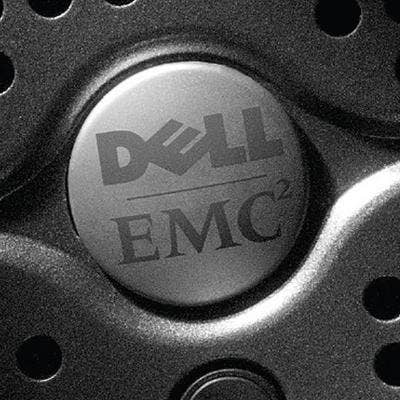
What’s the new competitive environment with Dell EMC as it both competes and partners with companies like HPE and Cisco? How is that changing now?
Burton: The infrastructure market, on-premises at least, is we believe a market that is consolidating. By the way, Dell has seen this play already with the PC market. They’re generating more cash for that higher share position I think now than ever before. In a consolidating market, what ends up happening is [that, for] the guys at the top, it’s a winner-takes-all game. We believe that it’s in having the broadest region of the market and having the best economics in the supply chain that we can take share. Fundamentally, I think a lot of that share we believe we can take from HPE. There’s going to be a very big competitive battle there.
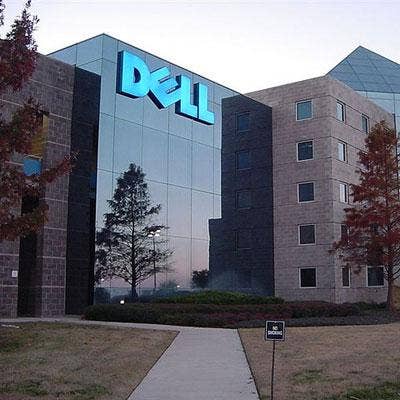
Does Dell's own consolidation of the server and storage business help?
Burton: Through consolidating contracts, people who bought storage we can maybe now sell them servers, and people who have bought servers we can now sell them storage. ... We also should bear in mind, in some of these newer segments that David mentioned like all-flash and like hyper-converged, HPE is not really a big player.
I want to be clear. Although we do see an opportunity to take a lot of share from HPE in infrastructure spend, we are fighting battles in all-flash with folks like Pure Storage, and in hyper-converged we’re fighting battles there as well. We want to be best of breed and have the best technology in those new areas, not just have any old portfolio and try and consolidate spend. You’re going to see a laser focus on HPE because we think they’re weak right now and we think we can take share there.
(For the first part of this conversation, click here)